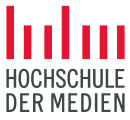Month: July 2021
Ergodicity and the Revolutionizing of Systems
Ergodicity, a term I had never heard before, threatens to undermine the very foundations of economics and risk analysis as it exposes flaws in the fundamental assumptions of these fields. Despite the new garnered attention, the concept of ergodicity is rather old and has been applied commonly in the fields of mathematics and physics. Unsurprising…

Hacking on Critical Infrastructure – Is there a Problem in Germany?
In May of this year, a cyberattack on the largest pipeline in the United States made global headlines. The supply of various petroleum products came to a standstill for several weeks. Pictures went around the world showing how fuels were filled and transported in a wide variety of containers. Even plastic bags were filled with…
